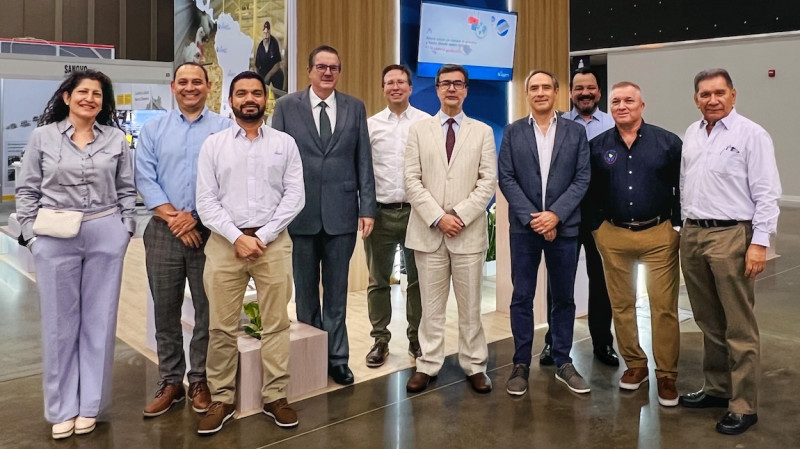 CAMPINAS, Brazil – Aviagen® Latin America spent a productive week in Panamá during Sept. 8-12, engaging directly with local producers and industry colleagues to share practical advice and exchange ideas on flock welfare, sustainability and performance.
CAMPINAS, Brazil – Aviagen® Latin America spent a productive week in Panamá during Sept. 8-12, engaging directly with local producers and industry colleagues to share practical advice and exchange ideas on flock welfare, sustainability and performance.
Tailored sessions for Grupo Melo and Toledano
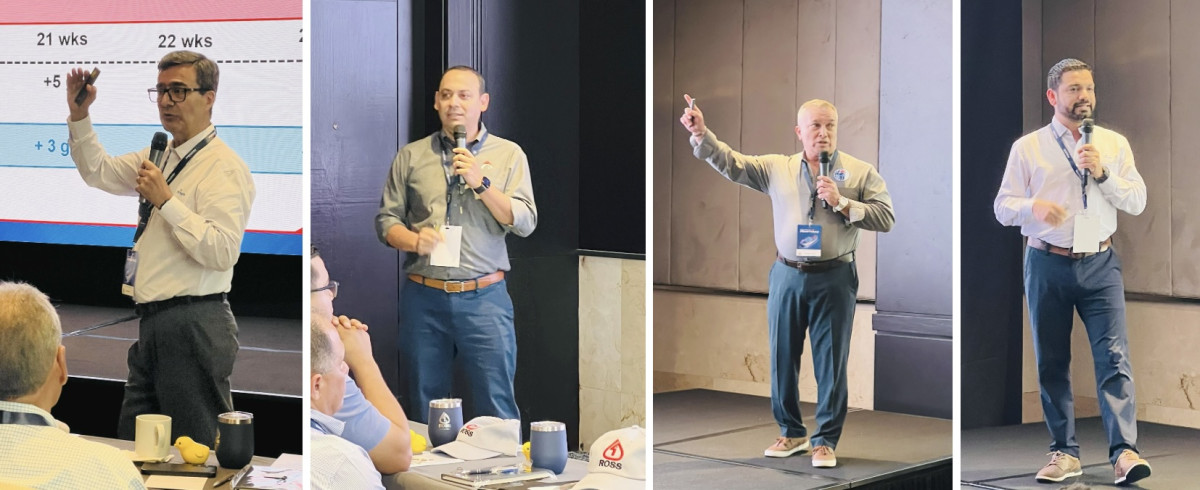 On Sept. 8 and 9, Aviagen teamed up with Interagro to bring its Knowledge Without Borders series to Panamá City. The two events were dedicated to Ross® 308 AP broiler customers Grupo Melo and Toledano, each welcoming around 80 participants.
On Sept. 8 and 9, Aviagen teamed up with Interagro to bring its Knowledge Without Borders series to Panamá City. The two events were dedicated to Ross® 308 AP broiler customers Grupo Melo and Toledano, each welcoming around 80 participants.
Aviagen and Interagro specialists led interactive discussions on topics key to Panamanian poultry production, including best practices for handling males and females with care, optimizing raw material potential, nutritional factors affecting chick quality and welfare, managing the incubation period – which makes up 40% of a modern broiler’s life – and giving chicks a strong start in the first 14 days. The agenda also covered nutrition strategies to support liver health, ways to prevent mycotoxins and control Marek’s disease, and environmental management to reduce heat stress.
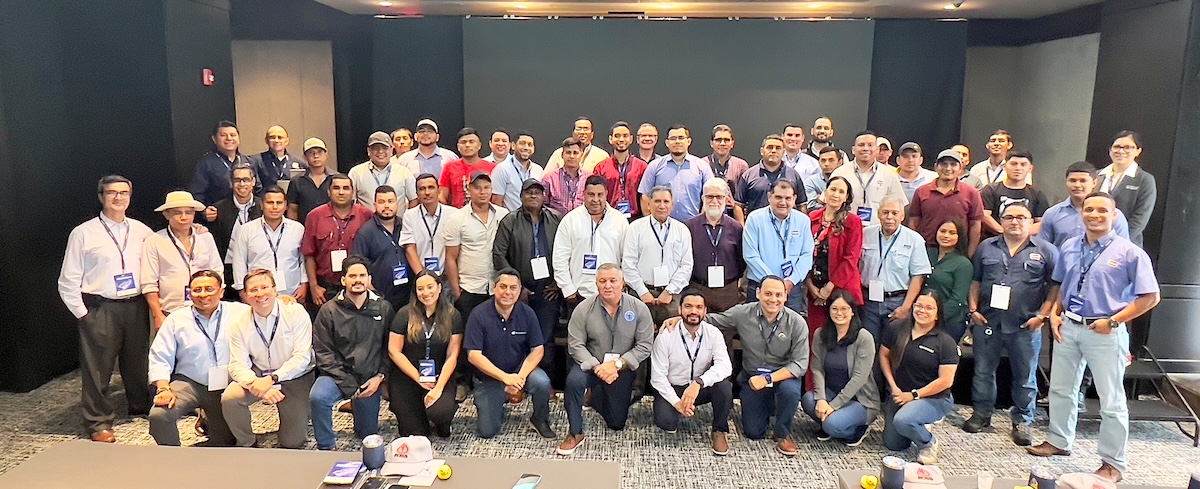
“We were pleased to work alongside Interagro to bring tailored advice to our customers in Panamá,” said Rodrigo Cisoto, Head of Technical Services for Aviagen in Central America, Mexico and the Caribbean (CAME). “This collaboration is a great example of Breeding Success Together in action.”
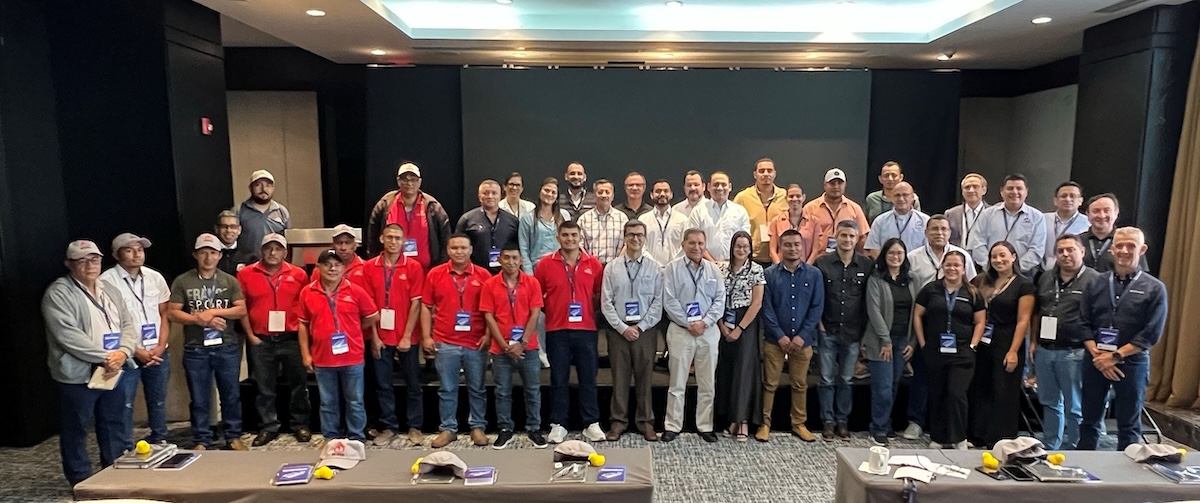
Connecting with the wider regional industry
Immediately after the customer-focused sessions, the Aviagen team joined poultry professionals from across Central America and the Caribbean at the XXVII Central American and Caribbean Poultry Congress, held Sept. 10–12 at the Panamá Convention Center. As a proud Silver sponsor, Aviagen welcomed visitors to its booth to learn about the latest management strategies for Ross 308 AP flocks, while also listening to the unique priorities and challenges of producers in the region.
As part of the event’s scientific program, Cisoto presented on “The importance of body conformation in modern breeders,” explaining how balanced body structure supports bird welfare, mobility, feed efficiency, and overall productivity — making it a key indicator of health and performance.
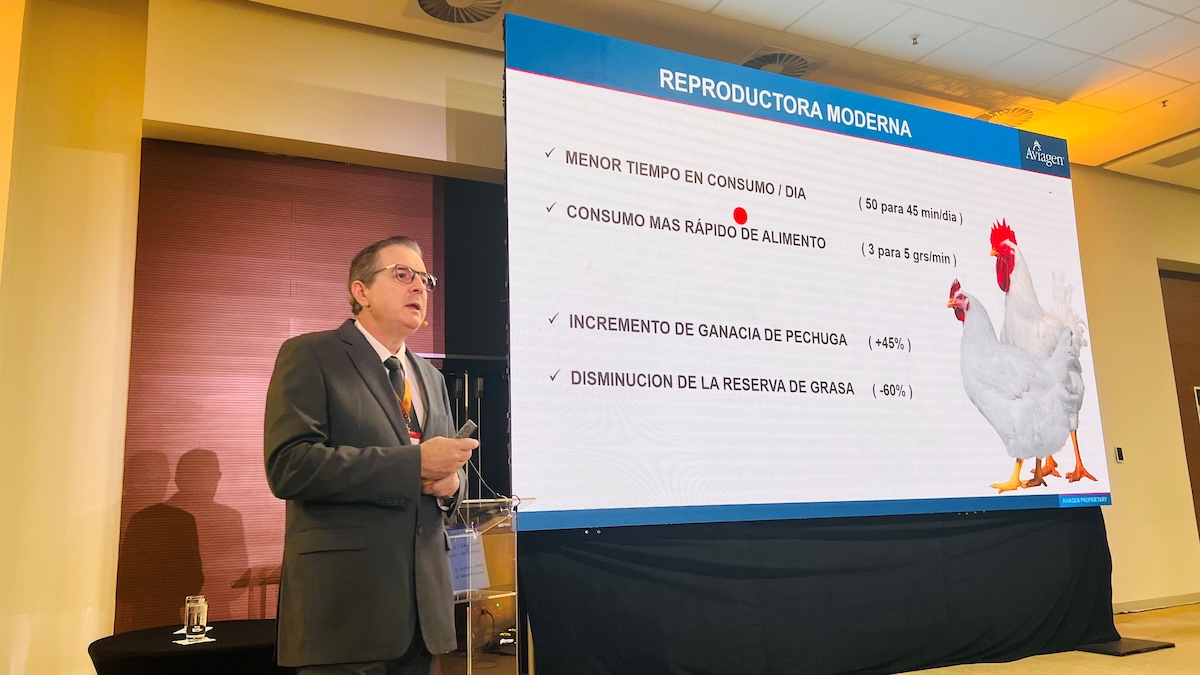 A growing market with strong potential
A growing market with strong potential
“Panamá is an important and expanding poultry market, with production projected to reach around 287,000 metric tons by 2028, up from about 250,000 metric tons in 2023 (source),” added Cisoto. “We are committed to the success of local producers, helping them provide Panamanian families with the healthy, sustainable chicken they enjoy.”